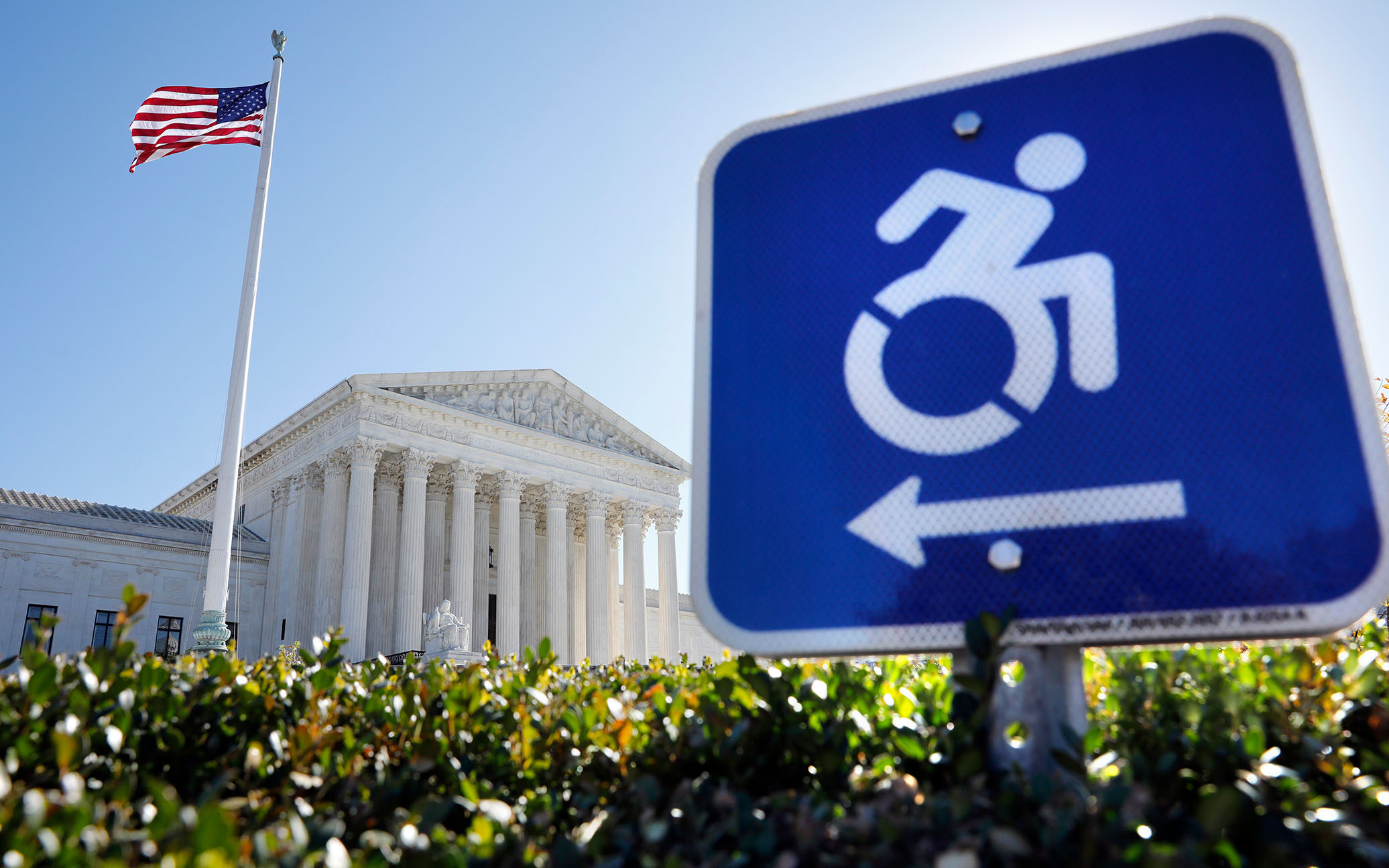Disability advocates worry that a U.S. Supreme Court decision curtailing the power of federal agencies could have a major impact on the rights of people with disabilities. (Yuri Grypas/Abaca Press/TNS)
The U.S. Supreme Court’s overturning of four decades of precedent could mean that myriad federal regulations that guarantee people with disabilities their rights to everything from health care to living in the community could face legal challenges.
In a ruling late last month, the Supreme Court said courts should no longer defer to federal agency interpretations in situations where the law is ambiguous.
The ruling in Roper Bright Enterprises v. Raimondo overturns the 1984 decision in Chevron v. Natural Resources Defense Council, which for decades shaped how federal agencies conducted their business. In that approach, the government relied on experts from each agency to fill in the details that clarify how various laws should be applied in practice.
ADVERTISEMENT – CONTINUE READING BELOW
“Chevron is overruled. Courts must use their own judgment in determining whether an agency acted within its statutory authority,” Chief Justice John G. Roberts Jr. wrote in the majority opinion in the latest decision. “Courts do not have to defer to an agency’s interpretation of the law simply because the statute is ambiguous, and they cannot do so under the Administrative Procedure Act.”
Now, advocates worry that the Supreme Court’s decision effectively opens the Code of Federal Regulations to litigation, which could have a major impact on people with disabilities. It could also lead federal agencies to be more cautious when crafting regulations in the future.
“The impact of the Supreme Court’s Roper decision could be devastating for people with disabilities,” said Maria Town, president and CEO of the Americans with Disabilities organization, which is “deeply concerned that this decision will open the door to a flood of litigation aimed at gutting federal regulations that protect the rights of people with disabilities.”
In fact, advocates argue, federal regulations are central to implementing the Americans with Disabilities Act, the Individuals with Disabilities Education Act, Section 504 of the Rehabilitation Act and numerous other laws that protect the rights of people with disabilities.
This year alone, the federal government finalized rules banning disability discrimination in health care, clarified how the ADA applies online, updated Supplemental Social Security Income and Medicaid home- and community-based services, and made a variety of other changes.
“This decision is likely to lead to a surge in litigation as industry and other groups challenge existing and new regulations,” said Kim Mucheno, vice president of public policy for the Autistic Society of America. “This will have particular impact on areas where regulations ensure people with disabilities have access to health care, public accommodations and other important services, potentially undermining decades of progress in disability rights and protections.”
Advocates say the regulatory process is unique in that it relies on experts and includes a public comment period to ensure people with disabilities have a say in changes that may affect them. Now, they worry, the increased focus on the courts could mean the voices of those most knowledgeable about the often technical and highly specific rules will be ignored.
“Courts have long relied on the expertise of specialized agencies in interpreting and implementing federal laws and programs to ensure that the needs and rights of people with disabilities are properly understood and protected,” said Shira Wakszlag, senior director of legal advocacy and general counsel at The Arc. “Without this deference, people with disabilities can face ill-informed and inconsistent legal decisions.”
Read more stories like this: Sign up for Disability Scoop’s free email newsletter to receive the latest developmental disability news straight to your inbox.

